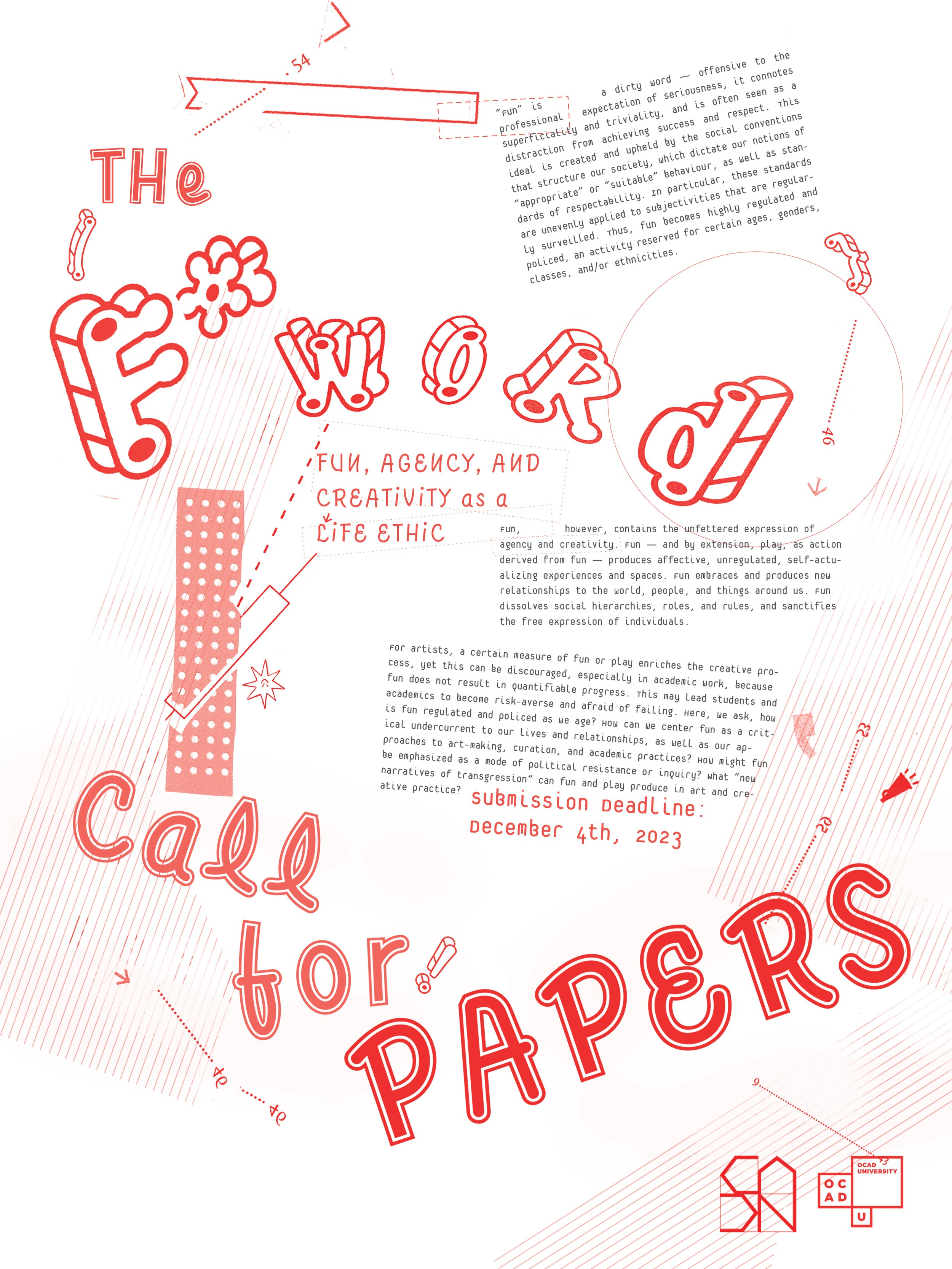The F-Word: Fun, Agency, and Creativity as a Life Ethic
2024 CADN Graduate Student Conference, OCAD University
Fun” is a dirty word — offensive to the professional expectation of seriousness, it connotes superficiality and triviality, and is often seen as a distraction from achieving success and respect. This ideal is created and upheld by the social conventions that structure our society, which dictate our notions of “appropriate” or “suitable” behaviour, as well as standards of respectability. In particular, these standards are unevenly applied to subjectivities that are regularly surveilled. Thus, fun becomes highly regulated and policed, an activity reserved for certain ages, genders, classes, and/or ethnicities.
Fun, however, contains the unfettered expression of agency and creativity. Fun — and by extension, play, as action derived from fun — produces affective, unregulated, self-actualizing experiences and spaces. Fun embraces and produces new relationships to the world, people, and things around us. Fun dissolves social hierarchies, roles, and rules, and sanctifies the free expression of individuals.
For artists, a certain measure of fun or play enriches the creative process, yet this can be discouraged, especially in academic work, because fun does not result in quantifiable progress. This may lead students and academics to become risk-averse and afraid of failing. Here, we ask, how is fun regulated and policed as we age? How can we center fun as a critical undercurrent to our lives and relationships, as well as our approaches to art-making, curation, and academic practices? How might fun be emphasized as a mode of political resistance or inquiry? What “new narratives of transgression”1 can fun and play produce in art and creative practice?
CADN Conference Team
cadn.conference.2024@gmail.com
1. Cathy Thomas, “Black Femme Rising: Cosplay and Playing Mas as New Narratives of Transgression,” American Journal of Play 13, no. 2-3 (2021).

